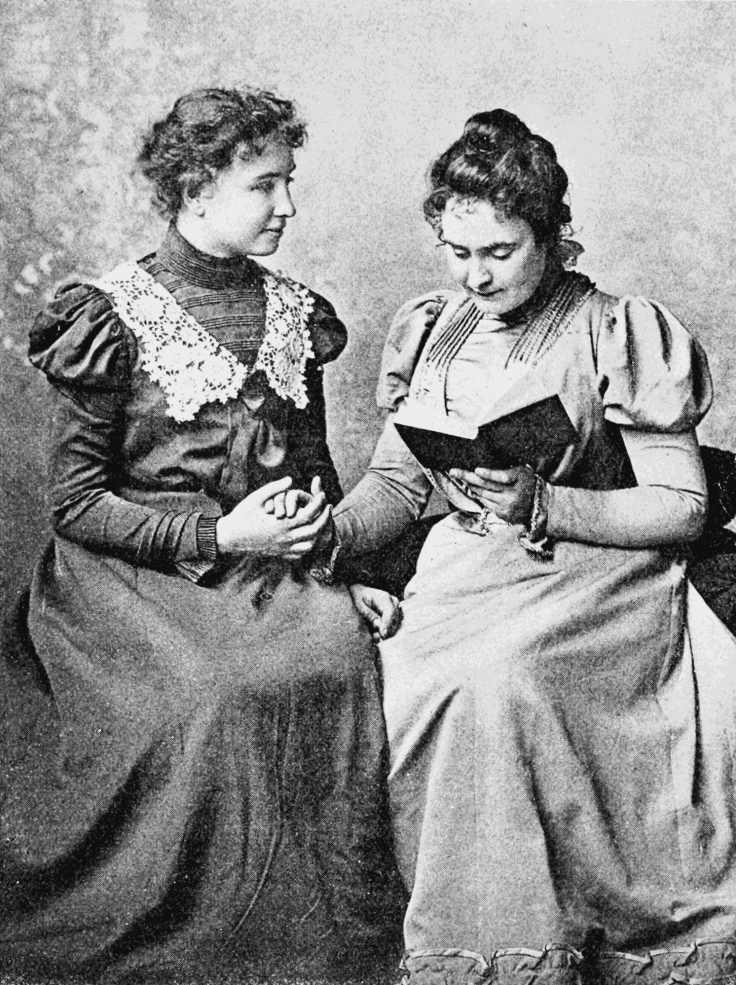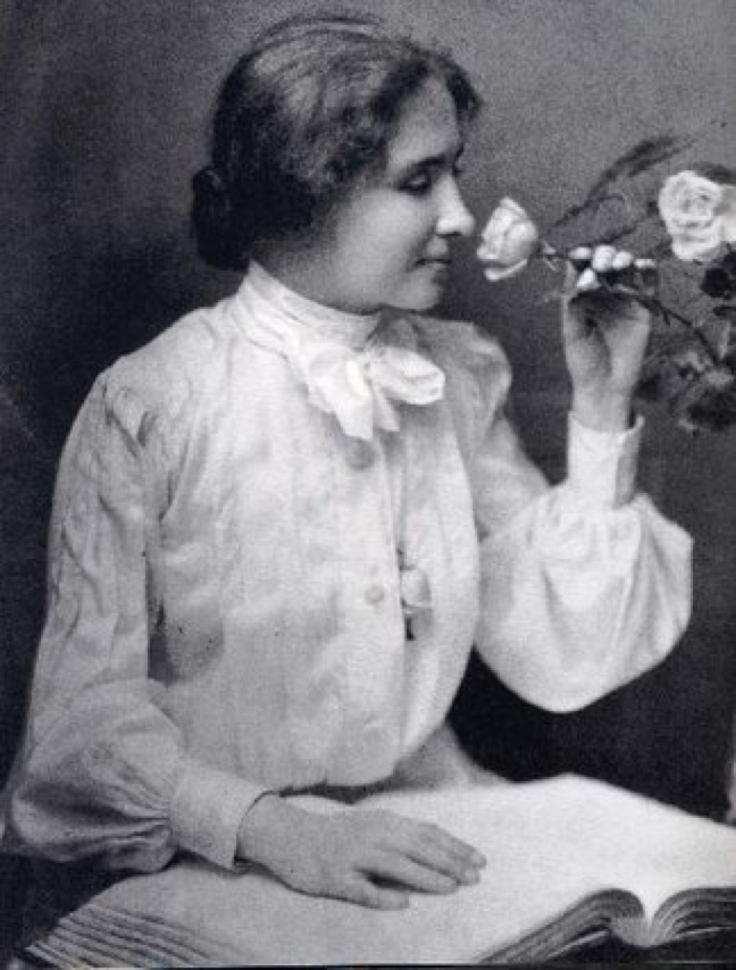It's Helen Keller Day today. She was born this day in 1880. Keller became both deaf and blind when she was just 19 months old. She is much famed for her life struggle that inspires many. As the first deaf-blind person to earn a Bachelor of Arts degree, she is not only a symbol of hope for all the disabled but even others. Ann Sullivan Macy was her instructor and lifelong companion, who was also partially blind.
Throughout her life, Keller's fight against the press reminds us of the current relevance of fact-checkers in a highly biased and often corrupt media. She was a socialist at a time when the media castigated and prowled upon anyone who claims to be one. She was negatively portrayed in the press for the views she held. The paper clippings of such pieces "fill a drawer," she said once. "I have not read a quarter of them, and I doubt if I shall ever read them all."
On the question of how she became a socialist, she simply said, "by reading." Though sightless, she was not short of experiencing the world. She had frequented sweatshops, factories, crowded slums of New York and Washington. "Of course I could not see the squalor; but if I could not see it, I could smell it... With my own hands I could feel pinched, dwarfed children tending their younger brothers and sisters, while their mothers tended machines in nearby factories," she wrote.

Why Was Keller a Socialist?
Speaking about her allegiance to the socialist revolution, she said, "I cannot help sympathizing with the oppressed who feel driven to use force to gain the rights that belong to them." In the same vein, she would have sympathized today's Black Lives Matter (BLM) movement or any other movement that drives people to gain their rights. Her remarkable sum up of why people dissent still holds value. Here's what she wrote in a piece on dissent:
People turn to a revolution only when every other dream has faded into the dimness of sorrow. When we look upon these mighty disturbances which seem to leap so suddenly out of the troubled depths, we find that they were fed by little streams of discontent and oppression. These little streams which have their source deep down in the miseries of the common people -- all flow together at last in a retributive flood.
Her hopes on democracy reflected the same when she wrote: "It is a time for loud voiced, open speech and fearless thinking; a time of striving and conscious manhood, a time of all that is robust and vehement and bold; a time radiant with new ideals, new hopes of true democracy."
When She Faced the Hostile Press
As long as she was serving the blind and involved in social activities, the press called her 'arch priestess of the sightless,' 'wonder woman,' and a 'modern miracle'. But when it came to her socialist views, many of them ridiculed her as "deaf, dumb, and blind." She reasoned it out candidly, "The money power behind the newspapers is against socialism, and the editors, obedient to the hand that feeds them, will go to any length to put down socialism and undermine the influence of socialists."
A similar incident happened to her with the then Brooklyn Eagle, when it said that Keller's "mistakes spring out of the manifest limitations of her development." Keller blasted the publication and essayed her reaction in a piece:'How I Became a Socialist':

Keller Fact Checked Press
An outlet, Common Cause, had a piece on Keller that claimed that since Anne Sullivan Macy and her husband John Macy were socialists, their socialist ideas descended on Helen Keller. She then clarified it in her piece, which may be called a fact check in today's parlance.
"Mr. Macy may be an enthusiastic Marxist propagandist, though I am sorry to say he has not shown much enthusiasm in propagating his Marxism through my fingers. Mrs. Macy is not a Marxist, nor a socialist. Therefore what the Common Cause says about her is not true."
The same piece had said that socialists exploited "poor Helen Keller," to which, she simply replied, "But I will refrain, simply saying that I do not like the hypocritical sympathy of such a paper as the Common Cause, but I am glad if it knows what the word 'exploitation' means."
The miracle worker didn't even spare The New York Times when a piece was written opining that Keller held a belief that went in "contempt" to the ones held by "all right-minded persons." Referring to Keller, it further said that red flag bearers should be regarded with suspicion. Such a thing "forfeits all right to respect and sympathy."
Keller responded in her own way, "I am no worshiper of cloth of any color, but I love the red flag and what it symbolizes to me and other Socialists. I have a red flag hanging in my study, and if I could I should gladly march with it past the office of the Times and let all the reporters and photographers make the most of the spectacle."
The editor of the same New York Times once asked her to write a piece for the paper, to which Keller responded in her own way, "I am to be regarded with suspicion. Yet the editor of the Times wants me to write him an article! How can he trust me to write for him if I am a suspicious character?... Probably our opinions have the same sort of value to him that he would find in the confession of a famous murderer. We are not nice, but we are interesting"
She wrote, "I think that every honest belief should be treated with fairness," but the press -- called the watchdog of democracy -- was not fair to Keller in her times.









